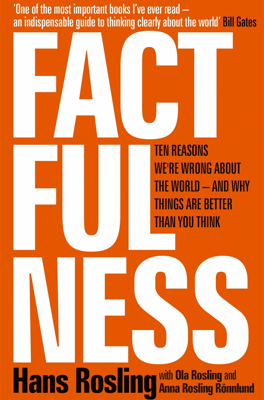Summary
Factfulness by Hans Rosling presents an enlightening approach towards understanding and overcoming our most common misconceptions about the world. Rosling dives deep into the cognitive biases and instincts—like the gap, negativity, urgency, and destiny instincts—that skew our perspective, urging readers to adopt a fact-based worldview.
Initially, Rosling addresses the gap instinct, where people tend to divide everything into two extreme categories, such as rich vs. poor or developed vs. developing. Using various data, including child mortality rates and economic growth statistics, he shows that most countries are actually progressing towards betterment, contrary to the common narrative of static underdevelopment.
The discussion extends to the negativity instinct, wherein our attention naturally gravitates toward negative news. Rosling points out that substantial global improvements often go unnoticed because of this bias. Providing statistical evidence and historical data, he illustrates that despite pervasive beliefs of global deterioration, many aspects like health, poverty reduction, and education are improving.
Another critical misconception Rosling tackles is related to population growth. Countering the straight line instinct, he clarifies that global population growth is slowing, projected to stabilize due to advancements in healthcare, education, and economic improvements. This debunks fears of perpetual increase and underscores the importance of nuanced understanding over simplistic projections.
The book also explores the fear instinct, where people often overestimate risks based on isolated dramatic events, such as terrorist attacks, while underestimating more significant, albeit less sensational, issues like climate change. Rosling argues for balancing this instinct by focusing on statistical realities rather than media-highlighted exceptions.
In terms of practical application, Rosling promotes factfulness—recognizing and factoring in these biases as a way to correct our views on world issues like poverty, health, and environment. Through this lens, we can prioritize actions based on a factual understanding, leading to more effective and sustainable solutions.
Ultimately, Factfulness does more than correct misconceptions; it offers a comprehensive toolkit for constructing a realistic and hopeful view of the world's status and our ability to improve it through informed action.
